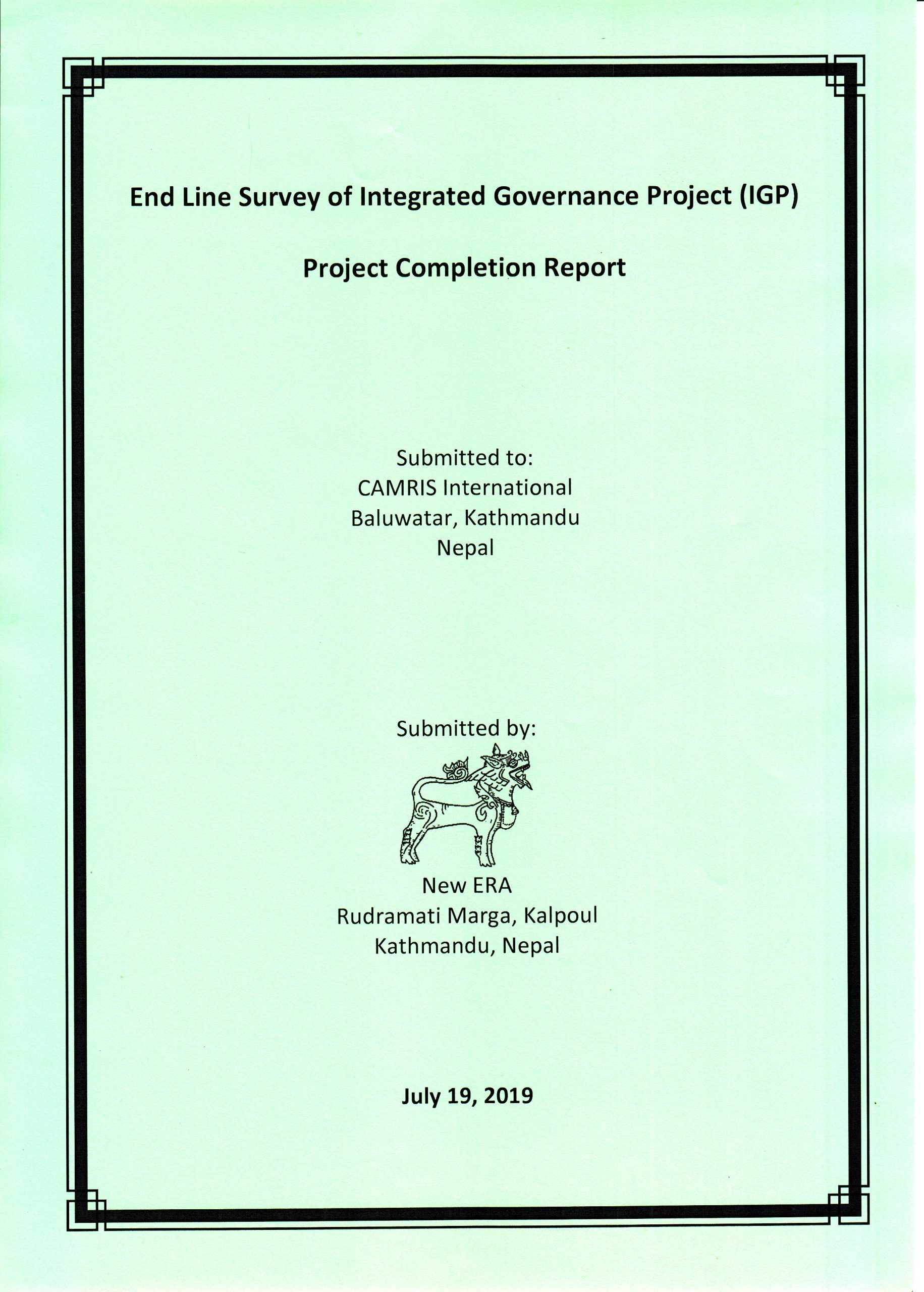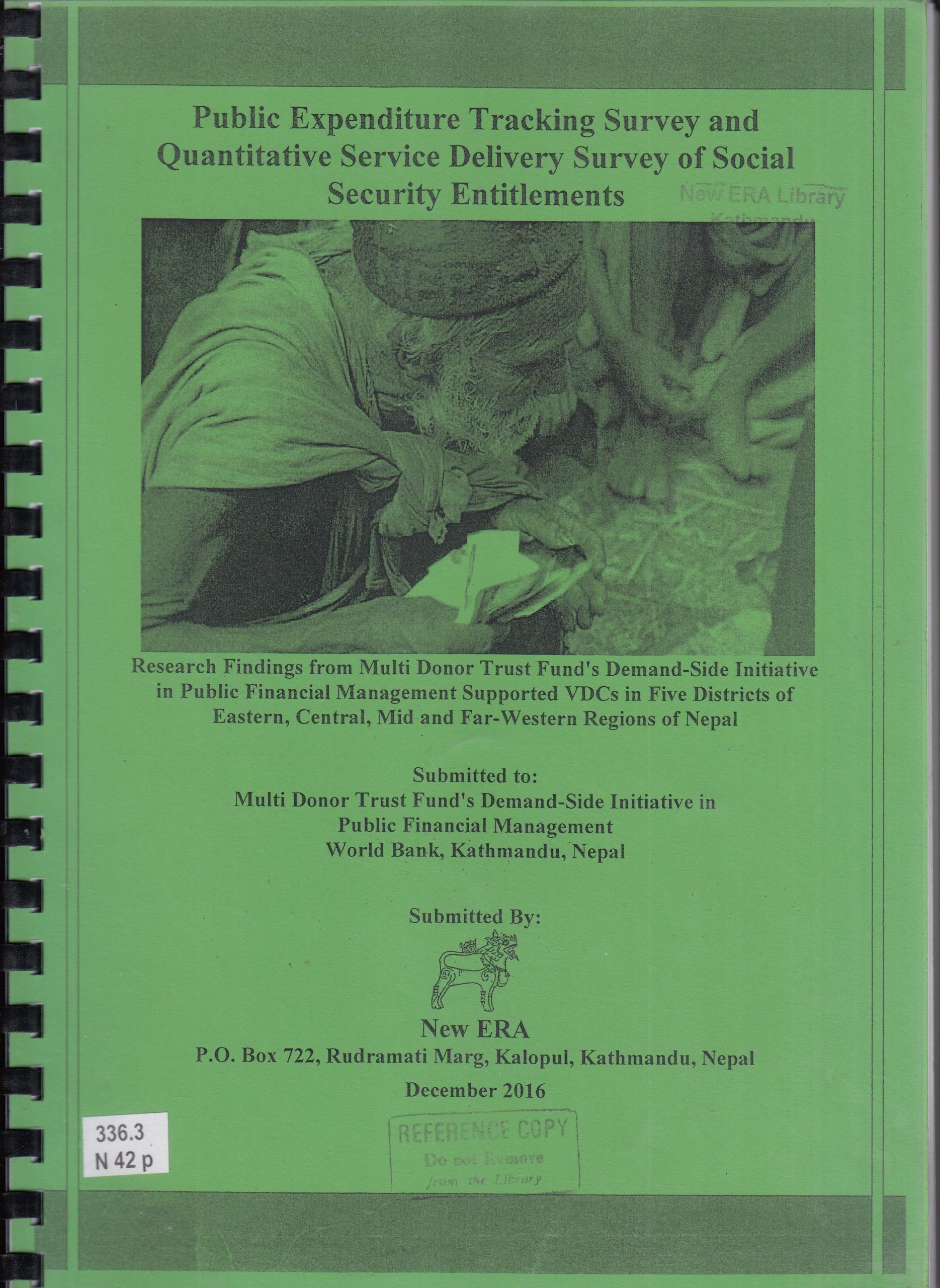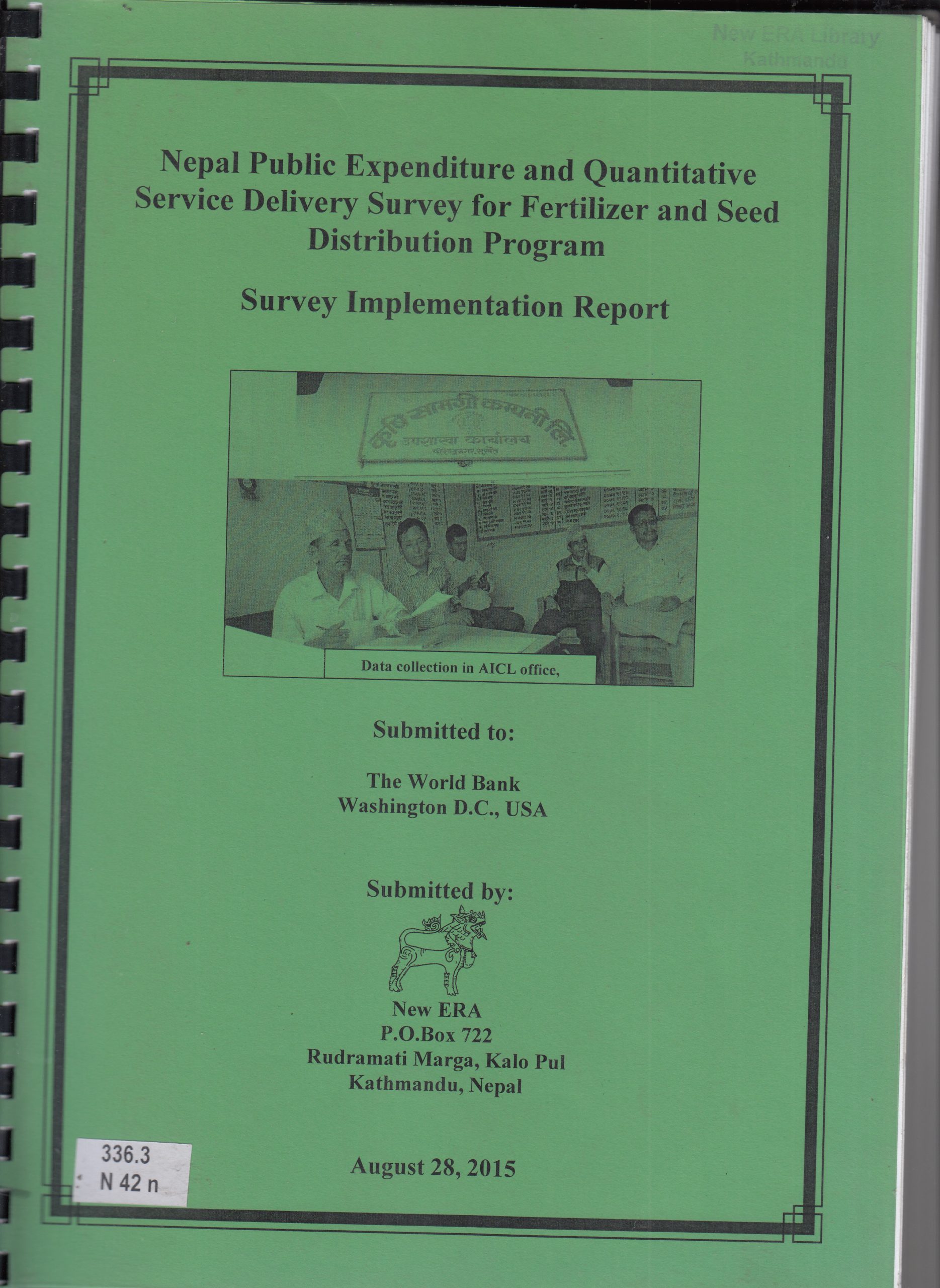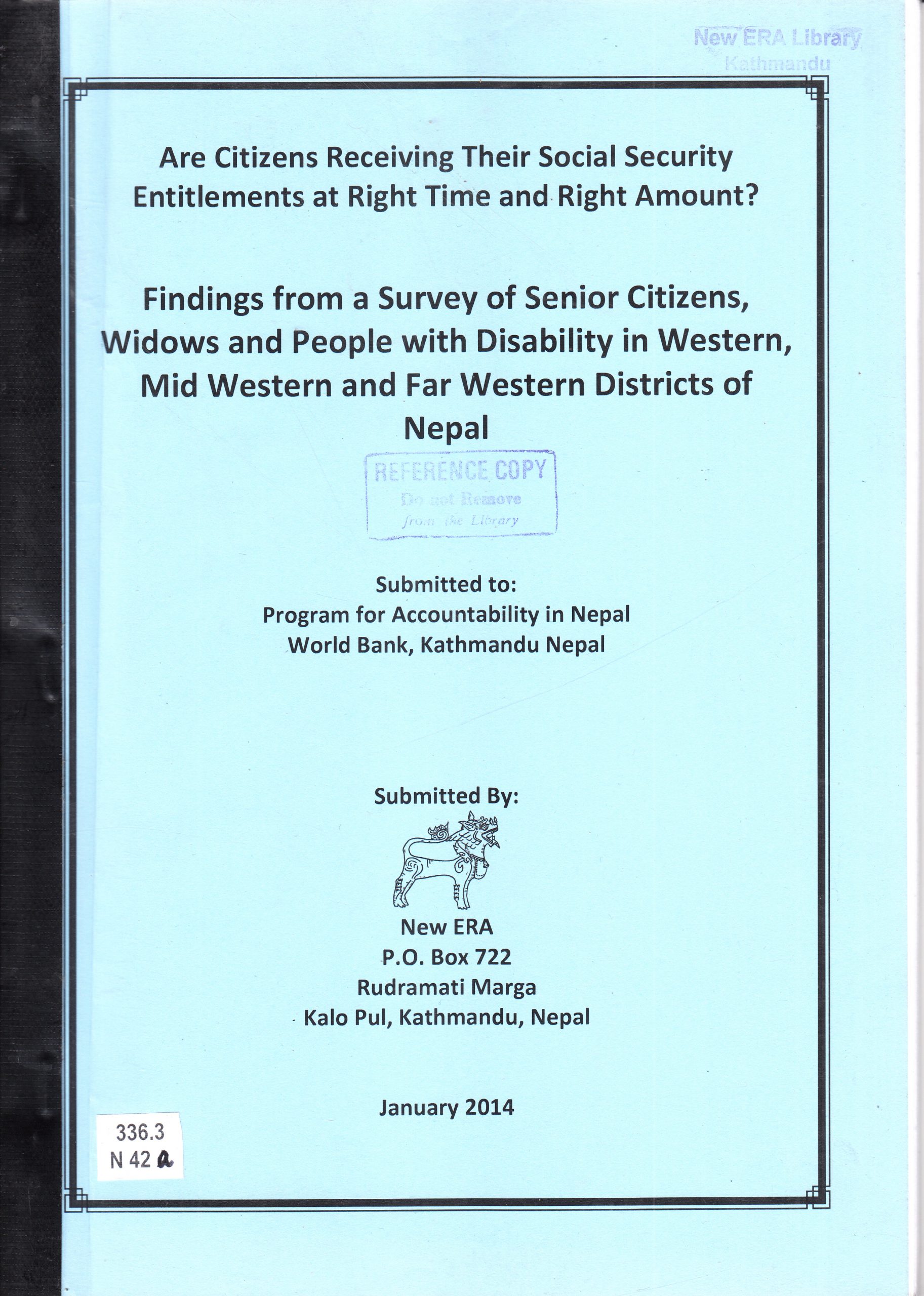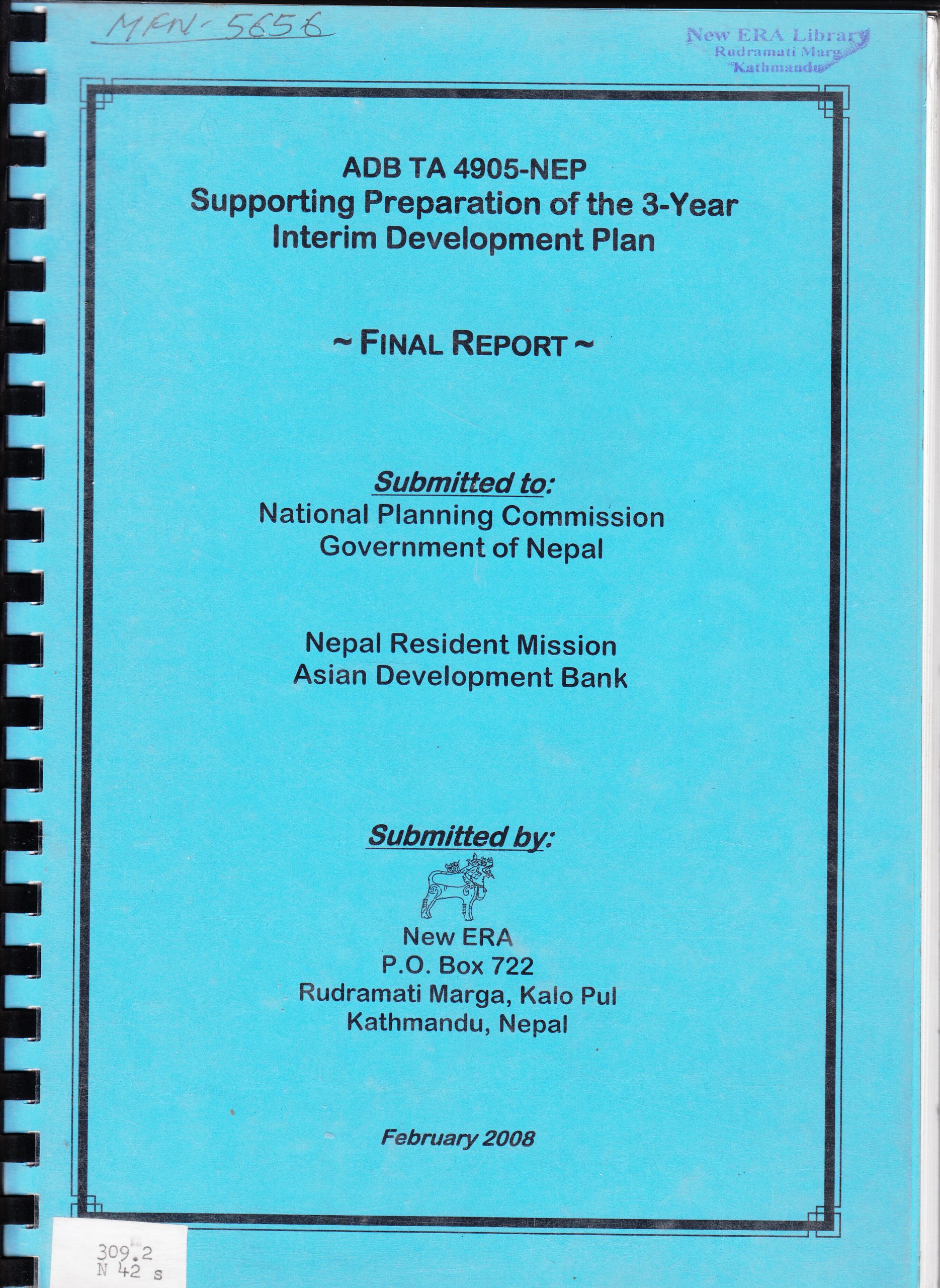Integrated Governance Project (IGP) plays an important role in providing information for USAID’s comprehensive 2014 Performance Management Plan (PMP), reflecting the CDCS. The overall goal for the Mission, as stated in the CDCS, is “a more democratic, prosperous, and resilient Nepal.” Three development objectives (DO) contribute to the achievement of this goal and reflect the key development hypotheses that will inform USAID/Nepal’s projects and activities over the five-year CDCS period. The objective of this survey was to assess effectiveness, increased inclusion of Nepalese in political life and improved the government’s ability to respond to their needs and demands with particular focus on marginalized groups like women, youth, certain castes and inhabitants of the Terai region of Nepal.
Report Type: Governance
Public Expenditure Tracking Survey and Quantitative Service Delivery Survey of Social Security Entitlements
This study is one of the activities of the Multi Donor Trust Fund demand-side initiativein public financial management. This survey was carried out to generate evidence based feedback on an important program as well as an important service rendered by the VDCs and expected to raise awareness of Social Security Entitlements (SSE) recipients and their families about their entitlements and processes to access them. The study assessed the extent of leakages and leakage points; exclusion of eligible person and reasons; the social impacts of SSE payments on beneficiaries.
Nepal Public Expenditure and Quantitative Service Delivery Surveys for Fertilizer and Seed Distribution Program
The Government of Nepal provided a huge amount of subsidies under Fertilizer Program, and the Seed Program, targeted to smaller farmers and intends to increase their access and use of improved inputs that enhance to increase productivity and production of major cereal grains. This survey was to analyse the flow of subsidy from the
source to the beneficiaries. The study assessed existing eligibility rules and access of targeted farmers to subsidized inputs; effectiveness of the existing distribution mechanism; leakage of subsidized inputs to non-targeted farmers; and effectiveness of existing governance and oversight arrangements.
Are Citizens Receiving Their Social Security Entitlements at Right Time and Right Amount
Program for Accountability in Nepal (PRAN) is a multi donor initiative to improve accountability in the public financial management of the Government of Nepal including both service delivery or supply side and the demand side. This study was to improved accountability of VDCs by identifying areas where gaps and lapses occur in SSE distribution and to provide a snapshot of the current accountability status using right time and right amount by citizens eligible to receive these in the three categories, as key indicators.
Public Expenditures Tracking Survey (PETS)
Public Expenditure Tracking Survey (PETS) was conducted with assistance from Adam Smith international (ASI),funded by DFID in order to identify and address problems and weaknesses in systems of public expenditures, transfer and service delivery so as to help the government ensure that allocated public resources effectively reach their intended beneficiaries. PETS also sought to reveal corruption/misutilization of funds and detect the exact location of leakages. The survey data were obtained employing both quantitative and qualitative methodologies.
Supporting Preparation of the Three Year Interim Development Plan
At the request of the Government of Nepal (GON), the Asian Development Bank (ADB) provided technical assistance (TA) for the preparation of the Three-Year Interim (TYIP), and New ERA implemented this TA under a contract with the ADB/Manila. The main objective of this project was to provide TA to the National Planning Commission Secretariat (NPCS) in the preparation of the TYIP. A team of 16 experts from various fields of development identified by the NPC provided the TA. The TA team undertook field visits and held consultation meetings with the rural population of Nepal, which is a valuable source of data considering that most of the rural population falls under the targeted communities of the TYIP. In order to finalize the Approach Paper and the TYIP, the TA team members met with the concerned personnel of various ministries. Similarly, workshops and seminars were also organized in order to implement a participatory approach in the preparation of the TYIP.



